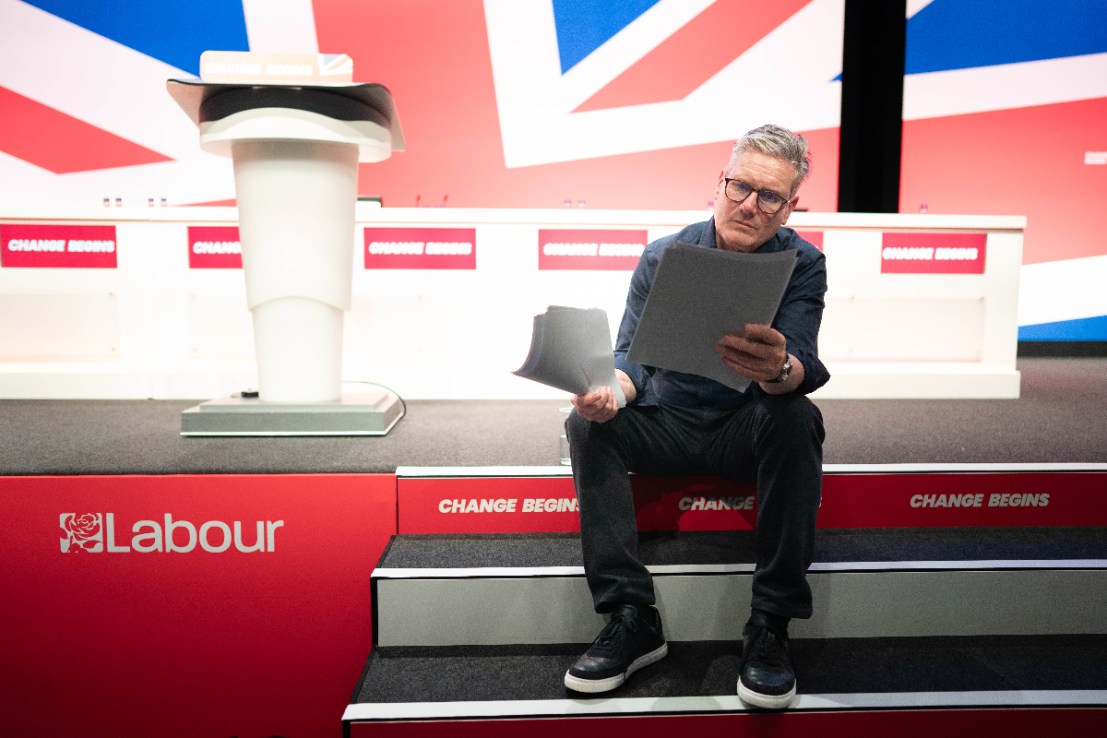Nightmare fuel: Have Labour’s first 100 days proved a shaky start?
During Liz Truss’ short-lived premiership, my friend confessed the then-Prime Minister was actually living out a recurring nightmare she occasionally had. The ‘plot’ of said nightmare? “The idea that you think yourself capable of something and you get to the top and you’re on the front page of every newspaper, and every news channel and [...]


During Liz Truss’ short-lived premiership, my friend confessed the then-Prime Minister was actually living out a recurring nightmare she occasionally had.
The ‘plot’ of said nightmare? “The idea that you think yourself capable of something and you get to the top and you’re on the front page of every newspaper, and every news channel and comedy show is making fun of you… your colleagues are talking openly about how s*** you are.”
Now, I’m not saying Keir Starmer is living through an anxiety dream of his own come to life.
But prior to the election, if you had to create a checklist for nightmarish future scenarios capable of keeping the Labour leader up at night, the past almost 100 days would likely have been pretty close to what you would have come up with.
A Taylor Swift-linked freebies scandal spiralling into weeks of frenzied media coverage. The Middle East teetering on the brink of all-out war, amid an unpredictable White House race.
Business confidence slipping as fears of a tax raid ramp up ahead of a brutal Budget. The loss of his chief of staff, Sue Gray, his most senior aide. Tick, tick, tick, and well, tick.
What might be most crushing of all, is the evaporation of Labour’s poll lead. Researchers at More in Common (MiC) revealed on Tuesday that it had fallen to just one point ahead of the Tories.
Asked their voting intention over the past weekend, some 2,023 British adults put Labour on 29 per cent and the Conservatives snapping at their heels on 28 per cent.
The usual caveats of course apply. Readers will know never to take one poll at face value, but to look at the broader trends.
Helpfully then, YouGov has also found that the Prime Minister is now equally unpopular as Reform UK leader Nigel Farage – on -36 to his -35 – his lowest score since taking over as Labour leader.
And as of 30 September, the average likelihood of someone voting Labour in the next general election had dropped from a pre-election high of 4.89 (out of 10) to 3.76 – which it hasn’t been on since November 2019.
This is all electorally pretty much irrelevant right now, as Luke Tryll of MiC acknowledged – “given we’re far off an election” – but nonetheless speaks to a pervasive mood of gloom.
Tryll argues Starmer must offer what he called “ a bold narrative on the why – what is the prize for weary voters at the end”.
Referencing a focus group, he added: “[I’m] still struck by a guy in Hendon who said of the PM ‘he’s come out and said, I’m not here to be Mr Popular, why not? Why not try and be popular?’”
Why indeed? Well, maybe it’s stating the obvious, but popularity isn’t exactly something a leader can summon up from thin air, Rather, voters are influenced by the reality around them.
And Sam White, Starmer’s former chief of staff, and ex-adviser to Alistair Darling, argues the Labour government is faced with something of a uniquely dire reality.
“My view is even if they are doing a brilliant job they’re going to struggle with popularity because they’re inheriting such a horrendous mess,” he told me.
“You’ve got debt at 100 per cent and tax at the highest level in 70 or 80 years and public services are a wreck. They’re trying to do everything at once.
Similarly, White suggests the reality of taking office is – unavoidably – a bit of a slap in the face.
“Whenever you come into government, there is a moment where you’re hit by the freight train of everything it involves, the sheer number of things that need managing.
“You can spend 90 of your 100 hours a week just on what’s coming through the door… crises you’re trying to stop from becoming public crises. That’s always going to be a shock.”
Despite this, White insists he is “more hopeful than I sound”, citing Rachel Reeves’ project to make Britain more attractive to investors – including Monday’s International Investment Summit – alongside planning reform and housing as “really big nettles you have to grasp”.
What he – and others – stress, is that “it’s going to take a long time to turn this around” and for initial policy decisions to begin to bear fruit.
Ultimately, the framing of the ‘first 100 days’ is an arbitrary number. We might as well talk about the first six weeks, or four months. The cold, hard reality is that economic recovery will be measured in years, not days.
However, with just days to go before that arbitrary deadline, Starmer chose to rejig his top team, in a bid to put an end to media speculation and the apparent infighting dogging No10.
Labour may be yet to turn a corner, but it signalled the PM’s focus is now on leaving the nightmare of those first 100 days firmly in the rearview mirror.



